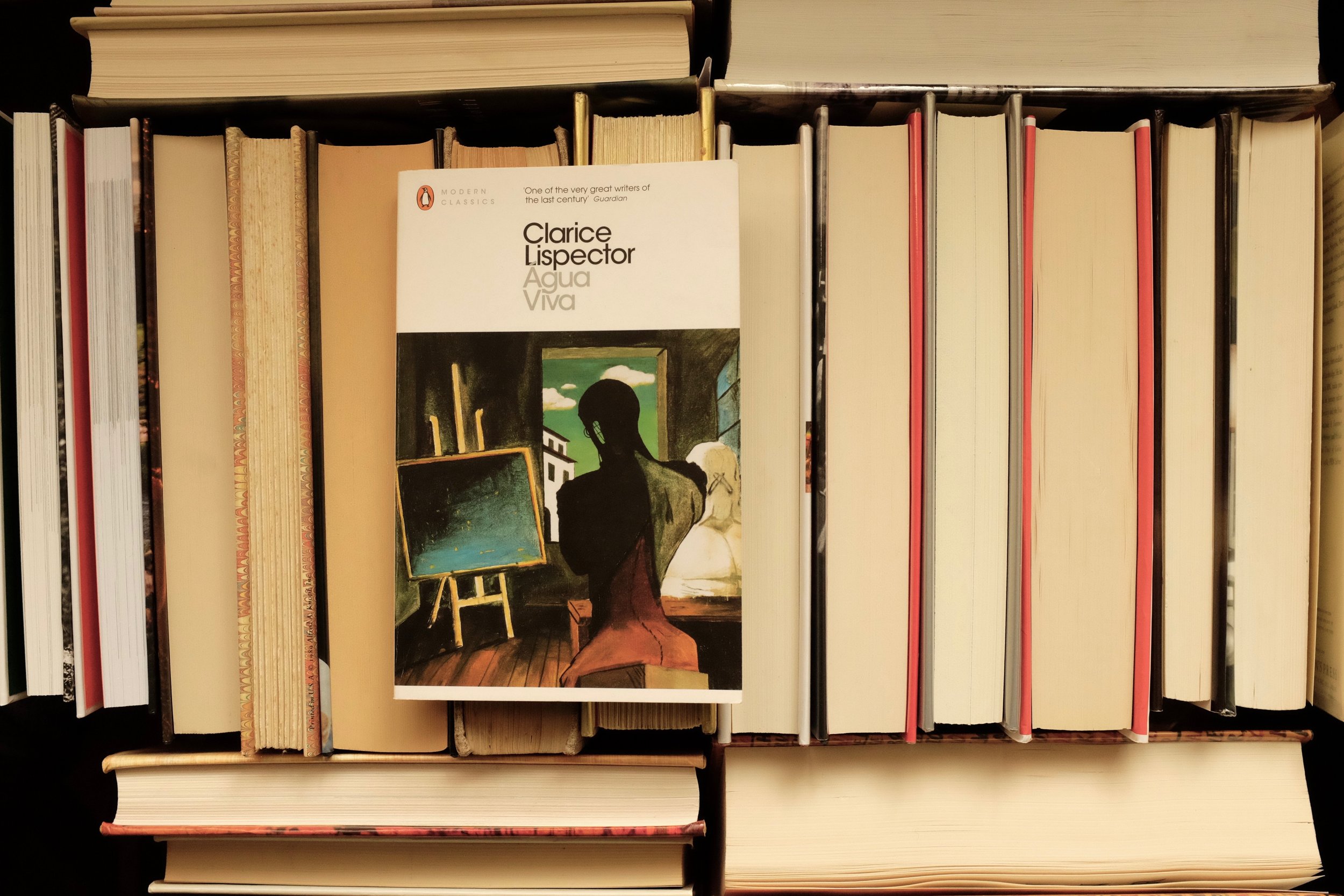By Daniel Stephensen
I love to discover writing at the confluence of poetry and prose; not prose poetry, nor poetic prose, but a kind of enfolding of the two—prose whose essence is poeming, prose which must poem. It’s a certain kind of motion. A poem that works shows the physicality of language, its force and mobility, and the physicality of the poet’s consciousness. Poetic motion moves always away from—and differentiates from—silence. The poem that works stands up by itself, moves itself, perseveres in itself. It is not inspired, it is physical, real, physical, mobile.
Poeming prose: a rare and unusual thing. I don’t know if it’s right to call Clarice Lispector’s Água Viva a novel. I could call it a poem, but is it? It novels, it poems… It is an event of language that stands up and moves and perseveres in itself, becoming understandable because it possesses a vivid physical force and makes clear meaning in itself. It is.
Água Viva asks to be encountered in its motion, en route. It asks that we go along with it. But what a gift! How alive it is! Open at any page and it enthralls—bizarre, dazzling, profound and prosaic at once. There’s not much story. If anything, it follows Clarice, an ordinary woman trying to encounter herself as she is. What is it about? No, no: how does it move… You’ll see. Read, re-read, re-re-read this astonishing effort of attention and art … This eighty-eight page work has no peer.
My effort: to bring now the future to here. I move inside my deep instincts which carry themselves out blindly. I feel then that I’m near springs, pools and waterfalls, all with abundant waters. And I free.
Lispector reaches across time, striving to encounter herself as she—Clarice—is in this moment, here, in this motion. She endeavors to encounter the foaming crest of her consciousness, and then to add language to the encounter. The book as a whole is poem-like, an event of language which stands up by itself, without any claim to completeness, and reaches across time, reaches for an encounter with the reader’s consciousness. And we cast ourselves after it, striving, reaching…
“And beyond the freedom,” writes Lispector, “beyond the certain void I create the calmest of repeating musical waves. The madness of free invention. Do you want to see it with me? Landscape where this music happens? air, green stems, the spread-out sea, silence of a Sunday morning?”
To receive updates from Sacred Trespasses, please subscribe or follow us on Facebook or Twitter.


